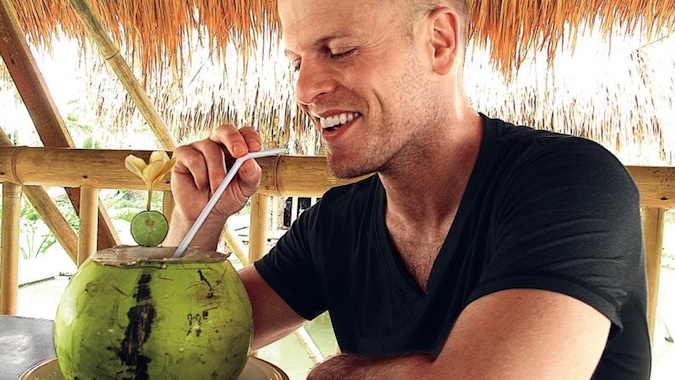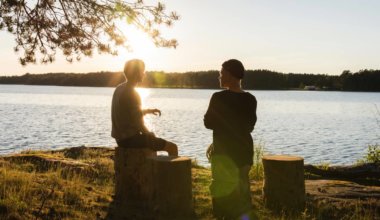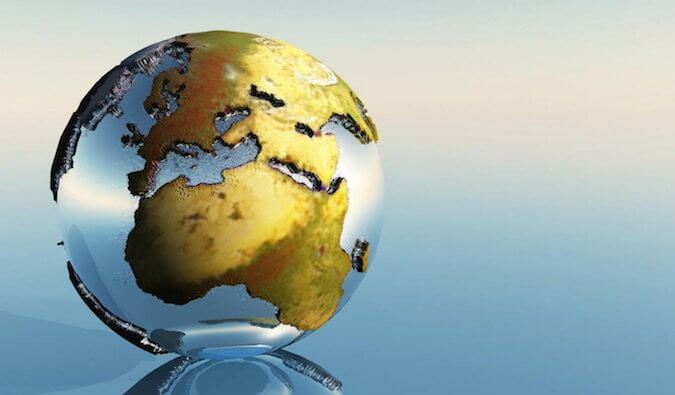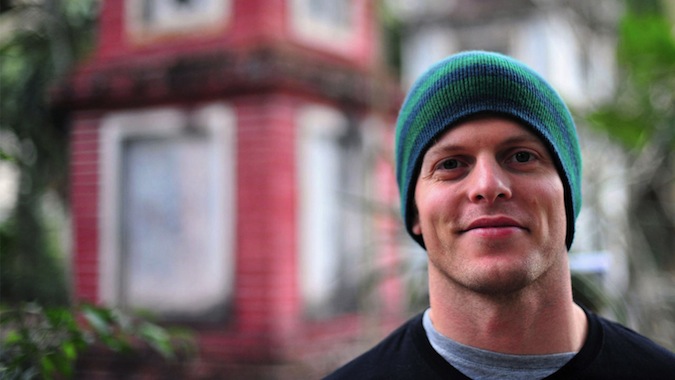
Posted: 04/28/15 | April 28th, 2015
When I was teaching English in Bangkok, a friend gave me a copy of The 4-Hour Workweek by some guy named Tim Ferriss. Apparently, it was a best-selling book. At the time, I was trying to figure out how to extend my travels, and my friend thought the book would be helpful. I read it and immediately wrote down ideas. It was filled with helpful tips on work-life balance, starting your own business, and living a time-rich life. The book had a profound impact on my thoughts about living life. I understood immediately why the book was (and still is) so successful.
Many of you probably have heard of Tim and his work. His books have been #1 best-sellers multiple times over, and he’s often considered the original lifestyle designer and life-hacker.
Since reading his book in 2007, I have continued to read Tim’s work, was featured on his website, and got to meet him on a few occasions (I tried very hard not to “fanboy out” the first time). Today, I’m beyond thrilled to share an interview I did with him where we talk travel, languages, and his TV show!
Nomadic Matt: You’re famous for all your “4-hour” books, but for those who don’t know you, can you give us a little background on yourself and how you got into this?
Tim: For sure. I grew up on Long Island, rat tail and all. I somehow ended up at Princeton studying neuroscience and then East Asian studies. I graduated in 2000 and headed to San Francisco to make billions at a start-up that promptly imploded. I started my own sports nutrition company.
However, my girlfriend left me and I had a nervous breakdown, which led me to leaving the US and traveling around the world for 18 months. That’s when I redesigned my life, the basis of which formed The 4-Hour Workweek.
It was turned down by 27 publishers, then it hit and stayed on The New York Times best-seller list for 4+ years. Years later, I’m still passionate about travel and showing people how to conquer fear.
My newest project, a TV show called The Tim Ferriss Experiment, explores how to conquer fear and increase your learning speed 10 times over. It was filmed and edited by the same Emmy award-winning team behind Anthony Bourdain (Zero Point Zero).
You were inspired to write The 4-Hour Workweek because you went on a big trip around the world, so let’s talk travel a bit. Why do you travel?
I travel to open my own mind, question my assumptions, and learn. You can’t understand or appreciate your own culture without experiencing other cultures.
Language learning, which I once considered myself “bad at,” is also the key to having a second soul. It gives you a new and better lens for the entire world. As Ludwig Wittgenstein said, “The limits of my language are the limits of my world.”
Like you, I was heavily influenced by our friend Rolf Pott’s book Vagabonding. In the world of life hacks and efficiency, do you think the aesthetic of slow travel has been forgotten?
If you’re constantly getting smartphone notifications every five minutes, it’s impossible to feel unrushed or nonreactive. So, I don’t think we’ve so much “forgotten” the art of slow travel as we’ve falsely convinced ourselves that we don’t have time. That’s nonsense. If you don’t have time, you don’t have priorities. What we lack is attention, not time. There are simple steps that help fix this, like making your Saturdays a “screen-free” day for instance.
Your new project is about you learning new things. Tell us about it.
The Tim Ferriss Experiment is kind of like Mythbusters meets Jackass. The goal is to give viewers tools to 10x their learning capacity, all while entertaining with action.
In each episode, I push myself to the breaking point, attempting to learn notoriously punishing skills — surfing, professional poker, Brazilian jiu-jitsu, parkour, languages, etc. — in just one week each.
For each skill, I partner with the world’s best and most unorthodox teachers (Laird Hamilton, Marcelo Garcia, Stewart Copeland, etc.), who train me for a final gauntlet. I don’t always win, and there are some spectacular injuries and catastrophes, but I show you how to replicate the breakthroughs.
The mantra of the show is “you don’t need to be superhuman to get superhuman results… you just need a better toolkit.” It was a brutal show to film. Lots of literal blood, sweat, and tears… all caught on camera of course!
I funded a lot of my original trip playing poker, so I was happy to see that episode. What was the most interesting thing you learned playing poker?
The most interesting thing about poker was the value of “selective aggression” and how a few tricks can help you hold your own, even against pros. The most important first step was realizing the power of a “fold or raise” game plan, where you “call” almost never, and you fold (throw your cards away) 70% or more of the time. You have to have the patience to fold for an hour straight before any action. Then, if you have “cards to bring to war,” you show no mercy with aggression and bet size.
Language is fundamental to travel and I know you’ve spent a lot of time learning languages. How many do you speak?
I’ve studied 10-plus, but these days, my best languages are Japanese, Spanish, Mandarin Chinese (which is basically the Beijing dialect), and English. If I have two weeks to prep, I can hold down the basics in German, Italian, and a few others.
It’s important to keep in mind that I quit Spanish in 9th grade because I’d concluded I was “bad at languages.” There are hacks for this stuff.
In one episode of The Tim Ferriss Experiment, I have to learn Tagalog (Filipino) in 3-4 days well enough to do a live TV interview in Tagalog. I don’t recommend that insane gamble, but the episode shows you what the human brain is capable of, including a lot of memory techniques that can 2-10x vocabulary acquisition.
How do you learn so many, so quickly? Is there a 4-hour language trick people can use? For the everyday traveler just going to Italy for two weeks, what can they do?
Absolutely. First, WHAT you study is more important than HOW you study. In other words, you have to study common, high-frequency words to get the most from the fewest hours. I like >www.vis-ed.com flash cards as they are made for this. In terms of order, though, I would do the following:
- Start using the free Duolingo app immediately, to get more comfortable with basic words, structure, and pronunciation.
- Simultaneously, learn mnemonic tools like the LinkWord method by Gruneberg, which will help you absorb more vocab. Memrise makes use of good mnemonics, and here’s their Italian course.
- Commit to 10-20 www.vis-ed.com cards per day for a week prior to the trip and each day in-country. Keep them in your pocket for downtime (e.g., waiting in lines, commuting, etc.)
- Get a Lonely Planet phrasebook and memorize at least your 10 favorite phrases, including one absurd one to make locals laugh. Something like “Are you allergic to llamas?” or whatever works great. This will make you a lot of friends.
- Consider watching American movies or TV you know well… with subtitles chosen. Do this at least four nights per week for two weeks prior to leaving. Here’s a creative way to find them: just search YouTube or Google “[name of tv show or movie] sub ita” If you’re a techie, you can also try sites like TV Subtitles.
- If you want to get aggressive and pick up a lot of conversation and idiomatic expressions, you could buy a popular comic book like One Piece in both English and your target language, in this case, Italian.
On the flip side of that, what SHOULDN’T they do? What are some mistakes you made that they should avoid?
Don’t use materials you wouldn’t consume in your native language. If you wouldn’t read the Financial Times in English, why on earth would you try it in Spanish or Japanese? Barf.
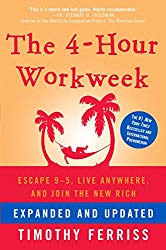
No one expected 4HWW to have the impact it did. I’m still astonished and humbled. The most common feedback I get is something like, “I used to work in a cubicle in a city I tolerated (at best), and now I run my own company from a laptop in awesome places like Costa Rica or Thailand.”
Literally tens of thousands of people have communicated this to me. It’s incredibly rewarding and I still have to pinch myself.
A couple of my readers had questions that I wanted to share. This one is from Jennifer: “If you could do it again, what would you do differently?”
I’d start meditating earlier. I can be quick to anger and hold resentment more than I should. Males in my family all seem to have fairly short fuses. Meditation moderates that a lot. I use transcendental meditation, but vipassana and others are great.
I suggest starting with guided meditations, whether on an app like Headspace or Calm, or audio on a site like samharris.org.
This is from another Matt: “What does the pursuit of happiness mean to you?”
It doesn’t mean much. I chased “happiness” and used that word for a long time, but I think it’s mostly a waste of time.
“Happiness” is overused in so many places that the meaning has become unclear. I agree with Nathaniel Hawthorne, who said: “Happiness is like a butterfly which, when pursued, is always beyond our grasp, but, if you will sit down quietly, may alight upon you.”
I tend to chase what excites me, and in doing so I usually end up very happy. It doesn’t seem to work in the reverse, at least not for me.
So since we are a travel website, let’s end with some lightning-round travel questions:
- Window or aisle? If it’s an overnight flight, definitely window. Otherwise, always aisle.
- What’s your favorite country? 1st: US (wasn’t always the case), 2nd: Japan, 3rd: Argentina.
- What’s the one travel item you always pack? A “Rad Roller” for rolling out my feet and forearms.
- Hostels or hotels? Neither. Apartments for at least 1-2 weeks, whenever possible. Airbnb has made this incredibly easy, even for shorter stays.
- You are dropped off at an airport and can go anywhere in the world. Where do you go? The Maldives! As much as I love scuba diving (which I’d also do there), I’d like to visit before the whole place is underwater.
The entire season of The Tim Ferriss Experiment is now available for binge watching (is there really any other way to watch anything these days?) on iTunes at itunes.com/timferriss. Here’s the trailer:
You can also find Tim on his blog, The 4-Hour Workweek.
Book Your Trip: Logistical Tips and Tricks
Book Your Flight
Find a cheap flight by using Skyscanner. It’s my favorite search engine because it searches websites and airlines around the globe so you always know no stone is being left unturned.
Book Your Accommodation
You can book your hostel with Hostelworld. If you want to stay somewhere other than a hostel, use Booking.com as it consistently returns the cheapest rates for guesthouses and hotels.
Don’t Forget Travel Insurance
Travel insurance will protect you against illness, injury, theft, and cancellations. It’s comprehensive protection in case anything goes wrong. I never go on a trip without it as I’ve had to use it many times in the past. My favorite companies that offer the best service and value are:
- SafetyWing (best for everyone)
- Insure My Trip (for those 70 and over)
- Medjet (for additional evacuation coverage)
Want to Travel for Free?
Travel credit cards allow you to earn points that can be redeemed for free flights and accommodation — all without any extra spending. Check out my guide to picking the right card and my current favorites to get started and see the latest best deals.
Need Help Finding Activities for Your Trip?
Get Your Guide is a huge online marketplace where you can find cool walking tours, fun excursions, skip-the-line tickets, private guides, and more.
Ready to Book Your Trip?
Check out my resource page for the best companies to use when you travel. I list all the ones I use when I travel. They are the best in class and you can’t go wrong using them on your trip.
